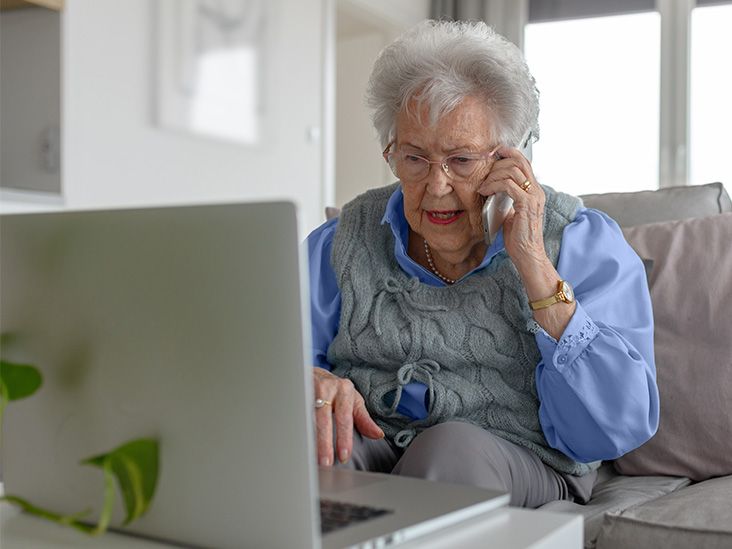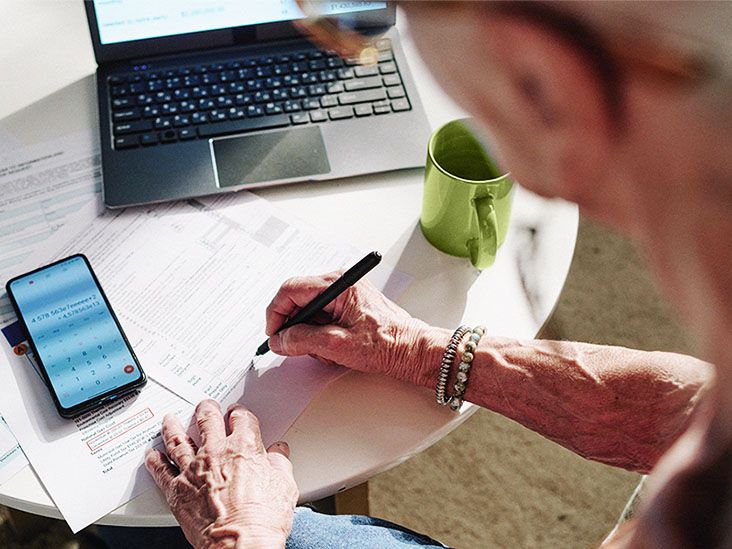You're doing it. You're showing up. Paying attention. Making phone calls, scheduling appointments, remembering which pill goes when all while holding it together when no one else can.
So let's talk about something that should help: Medicare.
But here's the thing Medicare for caregivers isn't what most people think it is. And if you're like I was two years ago, you might assume it covers just about everything. Nope. Not even close.
It doesn't hand you a paycheck for changing adult diapers or cooking meals every night. It won't cover round-the-clock help. But and this is a big but it can pay for things that truly make your job easier: skilled nursing visits, therapy, training for you, even equipment like wheelchairs and hospital beds.
The trick? Knowing exactly when and how it works before you're hit with a $3,000 bill you didn't expect.
So let's walk through this together. No policy-speak. No robotic explanations. Just real talk about what Medicare really does (and doesn't) do for caregivers like you.
When It Helps
First, let's get clear: Medicare doesn't cover "caregiving" as a role. It covers services. Big difference.
It steps in when someone is recovering after surgery, a stroke, or a serious illness and needs skilled medical care at home. That's the sweet spot. And yes, that means you might finally get some actual, professional backup.
For Medicare to pay, a few boxes need to be checked:
- The person you're caring for must be considered homebound not just "prefers to stay home," but medically unable to leave without great effort or risk.
- A doctor must order the care as part of a formal treatment plan.
- The services must be intermittent a few times a week, not 24/7.
- And this one trips people up it must come from a Medicare-certified home health agency.
I remember when my aunt thought she could hire a neighbor nurse directly. Nope. Medicare said no. Only agencies they've approved. It's frustrating, sure but safety first, I guess.
And one more thing: there must be a face-to-face visit with a healthcare provider before care starts. It can't just be a phone call. That's a rule from Medicare itself and yeah, it's in the fine print.
Services Covered
Okay, so what does Medicare actually pay for? Let's break it down.
Skilled Nursing
This isn't someone cooking and tidying. Skilled nursing means medical care: wound dressing, IV meds, monitoring blood pressure, or teaching how to manage complex medications.
Here's the part many caregivers miss: The nurse can train you. That matters. They'll show you how to check for infections, when to call the doctor, or how to help someone transfer safely from bed to chair.
You're not just standing around you're part of the care team. And Medicare knows that. That's why they allow it.
Therapy Help
After a fall or stroke, therapy is often the bridge back to independence.
Physical therapy helps rebuild strength and balance. Occupational therapy teaches how to dress, cook, or use grab bars safely. Speech therapy can restore communication or help with swallowing which, by the way, is more common than people think.
Progress has to be shown, though. Medicare doesn't pay forever. If therapy stalls, they may cut off benefits. That's why regular updates from the therapist are so important.
Home Health Aides
Now, here's where it gets confusing and honestly, a little unfair.
A home health aide can help with bathing, grooming, or walking but only if the person is also getting skilled care, like physical therapy or nursing.
If bathing is the only thing needed? Medicare says no.
It's a rule that feels cold, especially when you've been up since 4 a.m. helping someone to the bathroom. But it's the line Medicare draws: medical recovery vs. daily living help.
Social Support
Emotional care matters too and surprisingly, Medicare agrees.
Medical social workers can offer counseling, help apply for food programs, or connect families with local support groups. They might even help set up meal delivery or transportation to appointments.
It's easy to skip this, especially when you're in survival mode. But mental health is part of healing. And if it's tied to a medical condition, Medicare covers it.
Durable Equipment
From wheelchairs to oxygen machines, Part B covers equipment that lasts at least three years and is used at home.
But and this is huge it must come from a Medicare-enrolled supplier.
One friend of mine ordered a hospital bed online to save money. $1,200 down, and Medicare said no. She had to eat the cost. Don't let that be you. Always check the Medicare Supplier Directory first.
What's Not Included
Let's get real. There are things Medicare won't cover and it's better to know now than later.
24/7 Care
Straight up: Medicare does not pay for around-the-clock in-home care. Ever.
It's built for recovery, not long-term custodial support. That means if your loved one needs someone there all day, that cost likely falls on you or the family.
Custodial Care
This includes help with bathing, dressing, eating, cooking, cleaning, shopping the daily stuff most caregivers spend their time on.
If that's the only need? Medicare says no. No meal prep. No laundry. No sitting with someone who just needs company.
Now, if skilled care is happening and an aide stops by, they might help with a bath during that visit. But it's a bonus, not the main event.
Family Pay
Here's the one that hurts: Medicare does not pay family members to be caregivers.
Not you. Not your sibling. Not your adult child.
Even if you've left your job. Even if you're the only one there. The system wasn't designed to cut you a check.
It's brutal. I get it. But and this is important other programs might.
Paid Care Options
Let me tell you about Maria. She's from San Antonio, and she took over caring for her brother after he had a stroke. She couldn't work. Bills piled up. She was drowning.
Then she found out about Medicaid's Self-Directed Care program.
In over 40 states, if someone qualifies for Medicaid, they can hire a family member often a child, sibling, or adult grandchild to be their personal care aide. And get paid for it.
Maria applied, got certified, and her brother hired her. She now earns $15 an hour not a fortune, but enough to cover rent and groceries. She says it changed everything.
It's called "Cash & Counseling" in some states, or "Consumer-Directed Care." Officially, it's under Section 1915(j) of the Medicaid waiver.
How do you find it?
- Call your Area Agency on Aging they exist in every state and are staffed with real people who want to help.
- Ask your state's Medicaid office about self-directed personal care.
- If the person you're caring for is a veteran, look into the VA Aid & Attendance benefit it can pay family caregivers directly.
- Go to Benefits CheckUp, a free tool that uncovers programs you might not know about.
Will you qualify? I can't promise that. But I can promise this: if you don't ask, you'll never know.
Extra Support
Even if you're not getting paid, there are ways to reduce costs.
Medigap Plans
Medigap (or Medicare Supplement) helps cover what original Medicare doesn't like copays, coinsurance, and deductibles.
For caregivers managing tight budgets, Plans K and L are worth a look. They set annual out-of-pocket limits. Once you hit that cap, you pay nothing more that year. That's peace of mind.
Medicare Advantage
Part C plans often include perks regular Medicare doesn't: transportation to appointments, adult day care, in-home support, even meal delivery.
Some are SNPs Special Needs Plans designed for people with chronic conditions like dementia, diabetes, or heart failure. These often have extra benefits tailored to real caregiving needs.
Just be careful: Advantage plans usually have networks. You can't just go to any doctor. Always check first.
Prescription Help
If drug costs are piling up, Extra Help (Part D) might be available. It slashes what you pay for medications.
If the person you're caring for is on Medicaid, SSI, or a Medicare Savings Program, they likely qualify automatically.
Savings Programs
And speaking of savings Medicare Savings Programs (MSPs) can cover Part A and B premiums, deductibles, and copays for low-income individuals.
Each state runs it differently. Contact your Medicaid office to see what's available. It's free to apply and could save hundreds a year.
Choosing Care Agencies
When you're finally ready to bring in help, don't just pick the first name that pops up.
Use Medicare Care Compare. Type in your ZIP, and you'll see home health agencies with star ratings, patient improvement rates, and hospital readmission data.
It's like Yelp for medical care but actually reliable.
Before starting, ask the agency a few key questions:
- Are you Medicare-certified?
- Will you give me an Advance Beneficiary Notice (ABN) if a service isn't covered? (That's your warning to avoid surprise bills.)
- How often will the doctor review the care plan?
- Can I switch if I'm unhappy?
You have the right to choose. To change. To speak up. This is your loved one's care and your peace of mind.
Final Thoughts
Look I won't sugarcoat it. The Medicare system isn't built for caregivers. It's built for patients in recovery. And yeah, that feels unfair sometimes.
But within that system, there are real tools: training for you, skilled help, equipment, even pathways to get paid in some cases.
Knowledge is power. And right now, you're gathering it.
So use it. Call the Area Agency on Aging. Check Care Compare. Ask about training under Part B. Apply for every benefit you might qualify for even the ones you think you won't get.
And if you're exhausted? If you feel unseen? You're not alone.
There are millions of you out there giving quietly, loving deeply, doing the work no one else can see.
And even if Medicare doesn't pay you, know this: what you're doing matters. Not just in the medical charts or insurance claims but in the quiet moments of dignity, comfort, and care.
That's not covered by any policy.
But it's everything.
FAQs
Does Medicare pay family members for caregiving?
No, Medicare does not pay family members to be caregivers. However, Medicaid’s Self-Directed Care programs in many states may allow family caregivers to get paid.
What home care services does Medicare cover?
Medicare covers skilled nursing, physical therapy, occupational therapy, speech therapy, and part-time home health aides—if combined with skilled medical care.
Can Medicare help with caregiving costs?
Medicare helps with medical caregiving costs like therapy and nursing visits, but not custodial care such as bathing, cooking, or 24/7 supervision.
Does Medicare cover in-home caregivers?
Medicare may cover intermittent home health aides if the person also needs skilled care like nursing or therapy, but not for full-time or non-medical help.
How can caregivers get paid through government programs?
Caregivers may get paid through Medicaid’s Self-Directed Care programs, VA Aid & Attendance for veterans, or state-specific initiatives if eligibility requirements are met.
What is custodial care, and does Medicare cover it?
Custodial care includes help with daily activities like bathing and eating. Medicare does not cover custodial care when it’s the only need.
Are durable medical equipment costs covered by Medicare?
Yes, Medicare Part B covers durable medical equipment like wheelchairs and hospital beds if prescribed by a doctor and obtained from a Medicare-enrolled supplier.
Disclaimer: This article is for informational purposes only and does not constitute medical advice. Always consult with a healthcare professional before starting any new treatment regimen.
Related Coverage
Get your free Medicare wellness visit every year. No cost, no copay. Stay healthy and catch risks early with this preventive care benefit....
Protect yourself from Medicare scams with tips to recognize and avoid fraudulent calls, offers, and phishing attempts....
Find the right Nebraska Medicare plans that fit your health needs and budget. Compare options and make informed decisions....
Facing Medicare problems? The Medicare Ombudsman helps resolve unresolved issues with coverage, billing, and claims....
Soothe anxiety and boost resilience with earthy, aromatic ashwagandha tea. Learn how the Ayurvedic adaptogenic herb relieves stress and fatigue plus simple homemade preparation....
Learn how American Indians and Alaska Natives can save on Medicare costs with special programs and protections....
Medicare Advantage HMO-POS plans offer a balance of cost savings and flexibility. Get the care you need, in-network or out....
Taking over a loved one's finances is challenging. Learn how to manage financial caregiving responsibly and avoid common pitfalls....
Stay safe with effective medication management for older adults. Learn tips to prevent errors, avoid interactions, and maintain health....
Don't accept memory loss as inevitable. Use 8 lifestyle tips and the Total Brain Boost supplement to keep your mind intellectually sharp and delay cognitive decline....









